fertilizing your veggies
purnima
12 years ago
Related Stories

GARDENING GUIDESGet on a Composting Kick (Hello, Free Fertilizer!)
Quit shelling out for pricey substitutes that aren’t even as good. Here’s how to give your soil the best while lightening your trash load
Full Story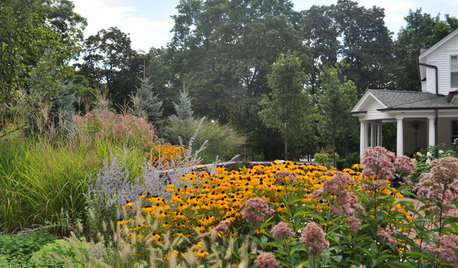
GARDENING GUIDESPacific Northwest Gardener: What to Do in September
Put in cool-weather veggies, fertilize your lawn and tidy the garden this month before chilly weather arrives
Full Story
FARM YOUR YARDHow to Build a Raised Bed for Your Veggies and Plants
Whether you’re farming your parking strip or beautifying your backyard, a planting box you make yourself can come in mighty handy
Full Story
GARDENING GUIDESCalifornia Gardener: What to Do in July
Active green thumb or not, top priorities for peak fruit and veggie season: watering, feeding, keeping up with growth
Full Story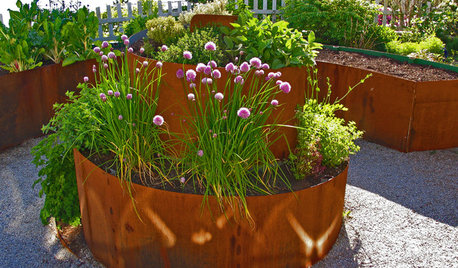
URBAN GARDENSContainers Make Growing Edibles a Cinch
If life hands you a lack of land, grow lemons — with a few basics, you can proudly reap the fruits, veggies and herbs of your labor
Full Story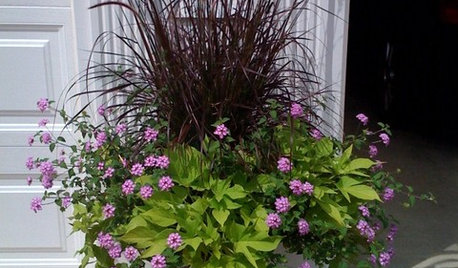
GARDENING GUIDESCalifornia Gardener's August Checklist
Share the veggie wealth, help plants sip smartly and don't forget to enjoy the simple pleasure of relaxing in your garden
Full Story
EDIBLE GARDENSHow to Grow Your Own Sweet Summer Crops
This guide will help any gardener get started on growing the freshest warm-season veggies and berries for summer
Full Story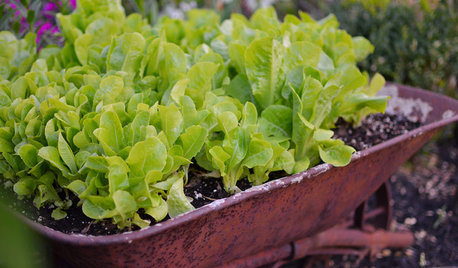
FARM YOUR YARD10 Easy Edibles to Grow in Containers
These herbs, vegetables and fruits are just as happy in a pot as they are in the ground
Full Story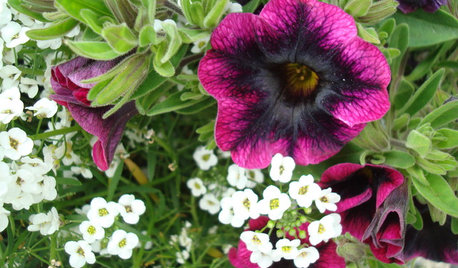
GARDENING GUIDESSoutheast Gardener: What to Do in July
Time to claim your prize: a bounty of fruits, veggies and flowers, but don’t forget to keep an eye on weeds, pests and water
Full Story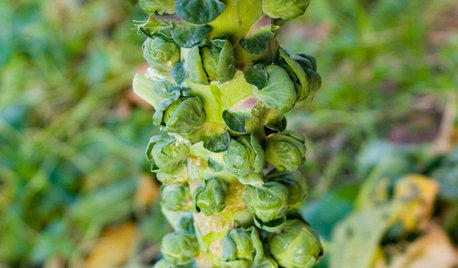
COOL-SEASON CROPSCool-Season Vegetables: How to Grow Brussels Sprouts
If you love 'em (you know who you are), fall and spring are the right times for planting these veggies in your edible garden
Full Story0
More Discussions






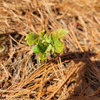
howelbama
digdirt2
Related Professionals
West Milford Landscape Architects & Landscape Designers · Goodyear Landscape Contractors · El Segundo Landscape Contractors · Fort Wayne Landscape Contractors · Harvey Landscape Contractors · La Vista Landscape Contractors · Lebanon Landscape Contractors · Lynchburg Landscape Contractors · Methuen Landscape Contractors · Northbridge Landscape Contractors · Panama City Beach Landscape Contractors · Severna Park Landscape Contractors · South Farmingdale Landscape Contractors · Beaumont Driveway Installation & Maintenance · Grand Rapids Driveway Installation & MaintenancepurnimaOriginal Author
howelbama
Edymnion
behlgarden
glib
dicot
tn_gardening
tracydr
purnimaOriginal Author
tracydr
glib